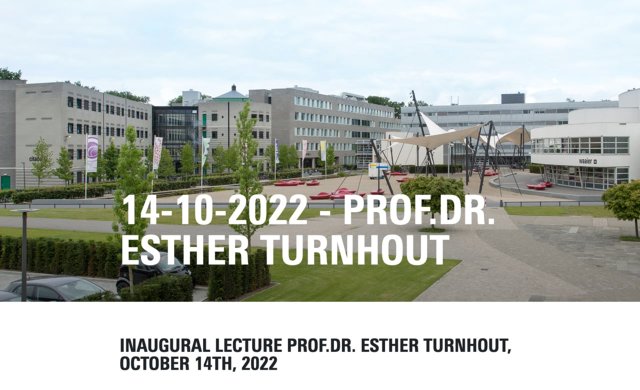In a rapidly changing world with increasing inequality, various sustainability and climate crises, Prof Dr Esther Turnhout says it is essential to take a critical look at how we do science. "A constant drive for a growing economy leads to overproduction and consumption. We are exploiting people and nature." Prof Dr Esther Turnhout holds her inaugural address, as professor of Science, Technology and Society at the University of Twente, on 14 October 2022.
Turnhout's interest in the connection between science, policy and society began during her PhD research. She says: "I did not just want to produce scientific knowledge, and I saw that many research results remain unused."
High inequality
The first problem Turnhout raises in her inaugural speech is that there are huge inequities between those responsible for environmental degradation and those most vulnerable to its consequences. "A phrase like 'We are all in the same boat' but also abstract systemic knowledge about the earth as a whole hide this inequality," Turnhout said.
Neutrality is a dangerous illusion
In addition, Turnhout emphasises the danger of the illusion of neutrality within environmental science. Neutrality is often seen as indispensable for truth-telling. However, complete neutrality is impossible and pursuing it can even be harmful, according to Turnhout: "Technologies such as CO2 capture and storage or mass tree planting do not yet exist or are not yet effective enough, but they are included in various models. Criticisms of these are often seen as political and not neutral, so they don't. But they do get in the way of reducing emissions, and thus science serves vested interests."
Change is needed
She concludes her speech with a future vision for science, technology and research institutions. Just as overproduction destroys the planet, universities also suffer from a focus on efficiency and productivity. "My vision for changing science also includes transforming the university. I could not have come to a better place for that than at UT."
About Prof dr Esther Turnhout
Prof Dr Esther Turnhout is head of the Science, Technology and Society chair within the Science, Technology and Policy Studies section (STePS; Faculty of BMS) at the University of Twente. She is an interdisciplinary social scientist with expertise in science and technology studies, environmental studies and political science.
Turnhout's research and teaching focus on the interaction between science and different knowledge systems. She also investigates the influence of science on policy and governance for biodiversity and sustainability transformations. She has published many articles on the biodiversity science-policy interface.






